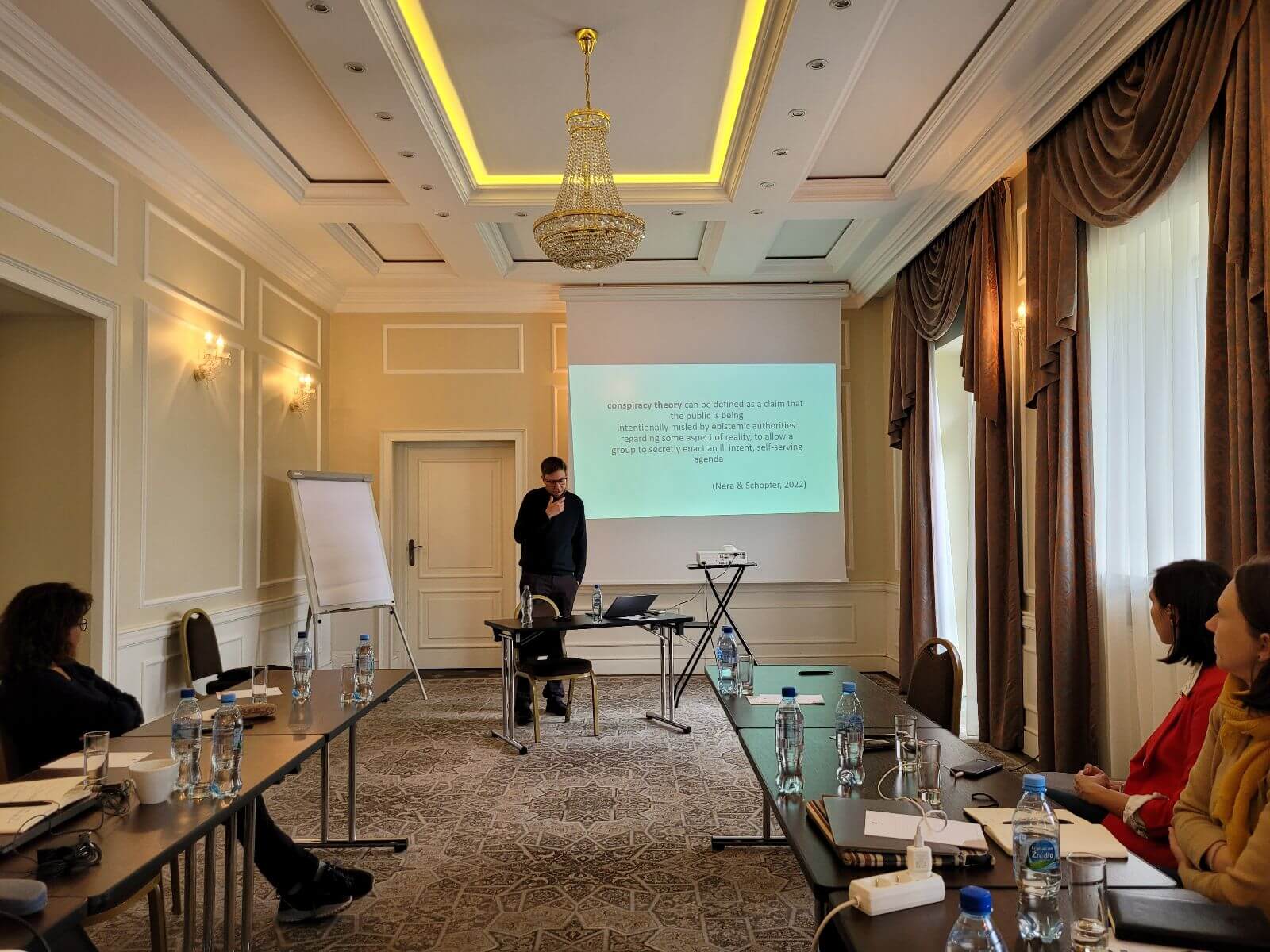Summary of the Central European Social Survey: a seminar

19 10 2022
Category: Events, II.3.5, Results
On the 8th and 9th of October, 2022, a seminar was held at the Zegrzyński Palace as part of the Central European Social Survey. During the seminar, the participants presented the results of the data analyses from the first wave of the survey.
On the first day of the seminar, Prof. Anna Kende presented research results on intergroup solidarity in collective activities and various forms of engagement with foreign groups. Dr Magdalena Paul and Dr hab. Małgorzata Kisilowska presented the results of their analyses of the differences in the reading levels among Central and Eastern European countries. The presentation by Dr hab. Beata Łopaciuk-Gonczaryk and Dr Anna Nicińska was concerned with the relationship between trust and preference for private or public services, and the impact of living under a communist system on attitudes towards public services. Dr Elżbieta Ciżewska-Martyńska and Dr hab. Bartłomiej Walczak presented analyses on hope and its relationship to religiosity and attitudes toward democracy. At the end of the first day of the seminar, Dr Mikołaj Winiewski presented analyses on the role of context in solidarity collective action for the Roma, in the different countries covered by the Survey.
On the second day of the seminar, Prof. Michal Bilewicz presented analyses on the relationship of secondary traumatisation by the Second World War with a sense of loss of control and conspiracy thinking. Dr Zuzanna Brunarska and Dr Sabina Toruńczyk-Ruiz presented analyses on the relationship of local and national identification with openness to internal and external immigrants. Dr Wiktor Soral’s presentation dealt with the different dimensions of willingness to vaccinate oneself, and their relationship to feelings of loss of control. In addition to the presentation of the results of the first wave of the research, there were also discussions about further work within the survey. There was a discussion about potential changes to the questionnaire for the second wave of the survey and the possibility of including questions on the current situation in Ukraine. There was also a discussion on the pre-registration of longitudinal analyses that will be conducted once the data from the second wave of the survey has been collected.
see also: twitter »